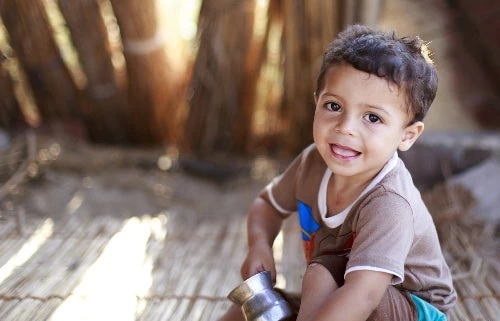 This year, I was given the incredible opportunity of a summer internship at the headquarters of the World Bank Group in Washington, DC, researching the different levels of investment that countries in the Middle East and North African (MENA) have made in Early Childhood Development (ECD). As a result, I gained insights into development issues I would not otherwise have been aware of, nor would I have had any idea of how to go about making improvements.
This year, I was given the incredible opportunity of a summer internship at the headquarters of the World Bank Group in Washington, DC, researching the different levels of investment that countries in the Middle East and North African (MENA) have made in Early Childhood Development (ECD). As a result, I gained insights into development issues I would not otherwise have been aware of, nor would I have had any idea of how to go about making improvements.
I began my summer internship working with a Practice Manager in Global Education, Safaa El-Kogali, and her team, on the “education for competitiveness” initiative. This initiative aims to develop strategies for upgrading education and training, and is primarily focused on MENA. My time was spent helping them prepare for a workshop that is due to be held in early 2017 on the progress of ECD in MENA, and the ways in which this could be accelerated.
I was faced with many tasks and introduced to new challenges, including ones I had not yet encountered in my experience of work, such as discovering the trials and tribulations involved in contacting people in organizations in different time zones! With Google translate as my best friend, I scoured the websites of government ministries for their ECD agenda, and researched people who have dedicated their lives to the study of ECD.
Our hope was to reach out to government officials and members of organizations who could bring about the changes necessary for improvements in individual MENA countries and the region as a whole. And, by doing so, these countries would be making progress toward the set of 17 Sustainable Development Goals that the United Nations got world leaders to agree on reaching by 2030 on issues like poverty, inequality, injustice, and climate change.
Working with such an amazing and supportive team, I learned about the overall deficit of early childhood development in MENA, and the region’s many gaps in pre-school education.
Looking at the health aspects and sociocultural aspects of ECD, I learned about it as a multifaceted phenomenon—for instance, how the iodization of salt, as well as parental support, contribute to the development of a child. Through studying various indicators related to ECD, I was able to see where MENA stood in comparison to other regions, and was given an insight into what is required to initiate policies and reforms that would benefit future generations.
Public investment in ECD in MENA is among the lowest in the world, and yet studies show that what happens in the first years of children’s lives often shapes them. From my research and my new experience, I found that the lack of information on ECD is a huge factor in the region. Hence it is important for the World Bank Group to spread knowledge about early childhood development around in these countries, to better their economies and the lives of future generations.


Join the Conversation